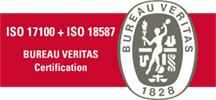As part of World Youth Day, taking place in Lisbon from 1 to 6 August, and Pope Francis’ 5-day visit, we reflect on the essential role translation has played in the dissemination of religion and culture. M21Global humbly welcomes Pope Francis to Portugal.
Translation is vital for the communication and understanding between different people, cultures, religions and beliefs. At M21Global translation company, we respect and stand on the legacy left by the translators who came before us, and especially the pioneers, dedicated to religious translation, who helped shape our perception of ourselves, others, and the world.
The art of translation is over a thousand years old. Translators, respected members in the societies of the time, were transmitting distant and unfamiliar ideas from other cultures and geographies, and accelerating the spread of knowledge, religious beliefs and shaping the linguistic evolution of languages themselves.
Although it is difficult to date the earliest translations, historical evidence suggests that the translation of cuneiform writing on clay tablets from Sumerian into Eblaite languages, around 4500 years ago was one of the first examples of this art.
Religious texts were essential for the dissemination of culture and knowledge, and these translations a field of primordial interest. It were these translations that made it possible for Buddhism to expand across Asia and for Christianity to spread around the globe.
In the United Kingdom, during the 5th and 6th centuries, monks and academics began translating parts of the Bible from Latin into Old English. In Portugal, there were also similar efforts by priests and scholars to translate parts of the Bible into Portuguese in order to increase access to the sacred texts. St. Jerome, a Catholic priest from the 4th century and patron saint of translators, introduced the idea that a translation should capture ‘sense for sense’ rather than a literal word for word translation, an approach still followed to this today.
The first complete translation of the Bible into Portuguese was carried out by João Ferreira de Almeida, a Protestant missionary born in Portugal. This work, known as the ‘Almeida Bible’, was first published in 1681. Although there were previous partial translations, it was Almeida’s work that made the complete Bible available in Portuguese for the first time, allowing Portuguese speakers to have a much wider access to the Bible. It also played an important role in the standardisation of language and the shaping of modern Portuguese language.
Translation, however, was not limited to the Bible alone, and played a determining role in shaping religions and cultures. Religious concepts and beliefs are disseminated and understood globally thanks to translation, from the Bhagavad Gita, the Koran, Buddhist sutras and many other sacred texts. With their translations into several languages, people from different cultural and linguistic backgrounds can understand and assimilate these traditions and cultures.
M21Global translation company is committed to providing accurate and culturally appropriate translations that preserve the texts’ original meaning and intent. As part of World Youth Day, and Pope Francis’ visit to Portugal, we have the opportunity to recall the significant influence that translation has had on the spread of several religions, cultures and knowledge around the world. Each religion has a unique view of the world and translation allows these perspectives to be shared with a wider audience, promoting mutual understanding and respect between different cultures and religions.
Considering the rich history of translation that shaped our religions, cultures and people, M21Global translation company is proud to continue this legacy, following in the footsteps of its ancestors, available to answer all of its customers’ needs, establishing a communication bridge between different languages and cultures. We believe that just as translation has helped spread knowledge, beliefs and cultures in the past, M21Global will continue to play a key role in providing a high-quality translation service, now not on clay tablets or papyrus sheets, but turning to the most advanced technologies at our disposal.

